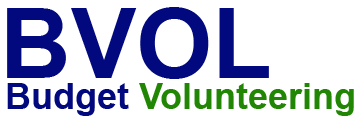You'll receive training on-site. You'll gain a lot of practical experience and you'll learn a tremendous amount. The type of work is very varied, depending on the time of year, but includes endangered flora and fauna surveys and monitoring, weed control, tree planting, erosion and salinity control, seed collection, construction and maintenance of walking tracks, habitat restoration and heritage protection.
The range of activities you may undertake includes:
- Caring for the animals and birds, including cleaning enclosures and cages.
- Preparing food and water for the animals.
- Filling the duck and swan pond.
- Assisting with compiling medical records for all new animals that are brought to the Centre.
- Checking the animal diet board to ensure that the sick or injured animals are receiving the meals that have been specified for them.
- Cleaning the hospital boxes and tanks.
- You may be able to assist with animal captures, but this will depend on a number of factors, such as whether the animal is dangerous, what type of terrain it is stranded in, and whether there are captures while you're there.
- Surveys and monitoring
- Ground maintenance: This includes tasks such as: checking the upkeep of the animal enclosures; checking the hoses and fixing them if required; checking the various pieces of equipment and reporting which need replacing or repairing, in order to ensure things are kept to the best standard possible
- Gardening and Laundry
- Help in the office with some administration
Animal welfare: the Centre has the policy that the feelings and mental welbeing of the animals, not the people, comes first! The centre brings in wild animals that are in desperate need of help, so you should be prepared for the fact that some of these injured or abused animals die and some have to be put to sleep.
You may also be able to assist with the various school groups that come to the Centre on educational outings. They usually have at least one group a week.
Education and Training Programmes: You may also get involved in the many different education and training programs that are open to the public. They have options suitable for any interested person, young or old. These include general training in wildlife care, work experience, training for vets and vet students in native animal care and handling, one-off tours and talks for school groups
Hours can vary, depending on the work which needs to be done, the time of year, season etc. You will generally work 5 days a week, often with early starts, but generally from around 8.00 to 3.00 or 9.00 to 4.00. Days may include weekends but you will have two days off a week.
Please note that the work that you'll be involved in depends on what is available at the time of your placement.
Accommodation
Your accommodation is a lovely Hostel located in the CBD (Central Business District) of Perth - very central, close to the main train station and shopping district. The Hostel is friendly and relaxing, making it ideal for long term stays.
You'll most likely have your own room, but will share a bathroom with others on your floor. There is an excellent kitchen and storage area for cooking meals and plenty of space to relax.
Entertainment at the Lodge currently includes a pool table, cheap internet access, arcade machines and cable TV (Foxtel), to name a few, but with all the sunshine Perth has, you’ll be out and about enjoying the many outdoor activities!
You are literally a stroll from the Swan River and free CBD transport. Trains and buses are also only a few minutes away to take you to Fremantle, King’s Park or to the many other things to do in the region!
The city centre boasts great shopping, restaurants and pubs, or you can head over to Northbridge for more pubs, nightclubs and multicultural cuisine. You'll get to work via bus, which stops outside your accommodation.
Food
Not included in this project. We recommend a weekly budget of AUD$70


